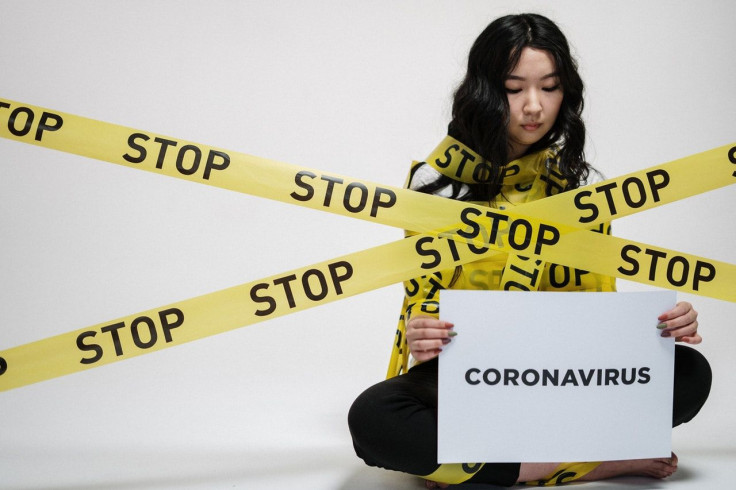World Mental Health 2020: Help Raise Awareness In Your Own Little Way
World Mental Health Day, a program started by the World Federation for Mental Health (WFMH), was first observed on Oct. 10, 1992. Since then governments and different organizations around the world have been holding relevant activities to spread awareness about mental health.
The day has become more significant at present as people worldwide carry the emotional burden of the pandemic. COVID-19 has drastically changed people’s lives, creating a new normal that threw many people into depression, isolation and anxiety.
The impact of the pandemic still sees no end, with social distancing and different restrictions still in place. The fear now is that not many people know how to handle the feeling of uncertainty and distress. For many, the burden of isolation is unfamiliar, and may not know how to talk about it or to reach out for help.

In your own little way, you can help raise awareness on the importance of mental health and let those suffering know that help is within reach. Below are a few steps you can do to help make observance of World Mental Health Day 2020 become more widespread.
Share the official World Mental Health Day 2020 campaign across social media channels
The World Health Organization, United for Global Mental Health and WFMH launched a campaign for the observance of World Mental Health Day 2020. The campaign aims to highlight the strong need for governments and associations worldwide to increase investment in mental health initiatives.
In line with the campaign, WHO is hosting worldwide virtual advocacy, The Big Event For Mental Health. World leaders and advocates are scheduled to talk during the event for the rest of the day.
You can help more people know about the event by liking and sharing WHO’s official social media channels where the virtual campaign will take place: Facebook, Twitter, LinkedIn, YouTube, TikTok and Twitch.
See posts, photos and more on Facebook.
Ahead of #WorldMentalHealthDay, WHO, @UnitedGMH and @WFMH_Official launch a global social media challenge to get the 🌎🌍🌏 moving on #MentalHealth .
— World Health Organization (WHO) (@WHO) October 7, 2020
Join us and #MoveForMentalHealth across @tiktok_us , @Facebook and @instagram !
More details: https://t.co/cv4Lg3tWNx pic.twitter.com/k6x3m8ljiP
Encourage friends, families and colleagues to monitor their daily mood
Writing down your daily mood is helpful for people who have difficulties understanding what is going on inside them. Give your loved ones a journal or share a virtual Daily Mood Tracker with them. The online tracker divides the day into two-hour blocks so people can really zoom in to their mood changes. They also have to write possible triggers for mood shifts.
Host a Mental Health Quiz Night
Many people chose to stay silent with their struggle due to the widespread stigma against people who suffer from mental illness. By hosting a quiz night you can find out how much your loved ones know about mental health and whether their knowledge is correct. You can also correct the misconceptions they have.
Here are some links to quizzes from Time To Change to help you host a Mental Health Quiz Night:
Check on the kids, they are suffering too
While anxiety and the feeling of isolation are widespread among adults, such sufferings are common to children too. Children are also suffering from the disruption brought by COVID-19.
Check on young family members, including teens, on how they are coping with the pandemic. Read stories to them that may invoke their need to share. Set aside a whole day of play, exercise, and other mindfulness activities with them. Coloring books and doing crafts will definitely help them lighten up.
Check out these 18 Mindfulness Games for kids from the website Positive Psychology.
Invite someone over for brunch
Check up on someone who is seemingly withdrawn and suddenly keeping silent on social media or group chats. It doesn't necessarily mean you’re going to intrude in their personal life. Invite him or her to a healthy brunch. Go the extra length of decorating the table with flowers or desserts.
Don’t ask him or her intruding questions. Instead, give a compliment. Tell how nice they look. Focus on something positive about them even if it’s about the shirt, the shoes or the bag. Ask about their pets or even simply how they like the food.
Do a random simple act of kindness
Give that old neighbor a new plant. Distribute inspirational quotes around the neighborhood. Share uplifting and encouraging stories across social media. These may look pretty mundane but you can start a chain of random acts that may reach that one person who truly needs it that day.
Keep your own mental well-being in check
Mental health includes your emotional health, psychological and social well-being. Ensure you are very much aware of your own feelings. It’s useless to care for others while you’re not in control of your own struggles deep within.

© Copyright IBTimes 2025. All rights reserved.





















